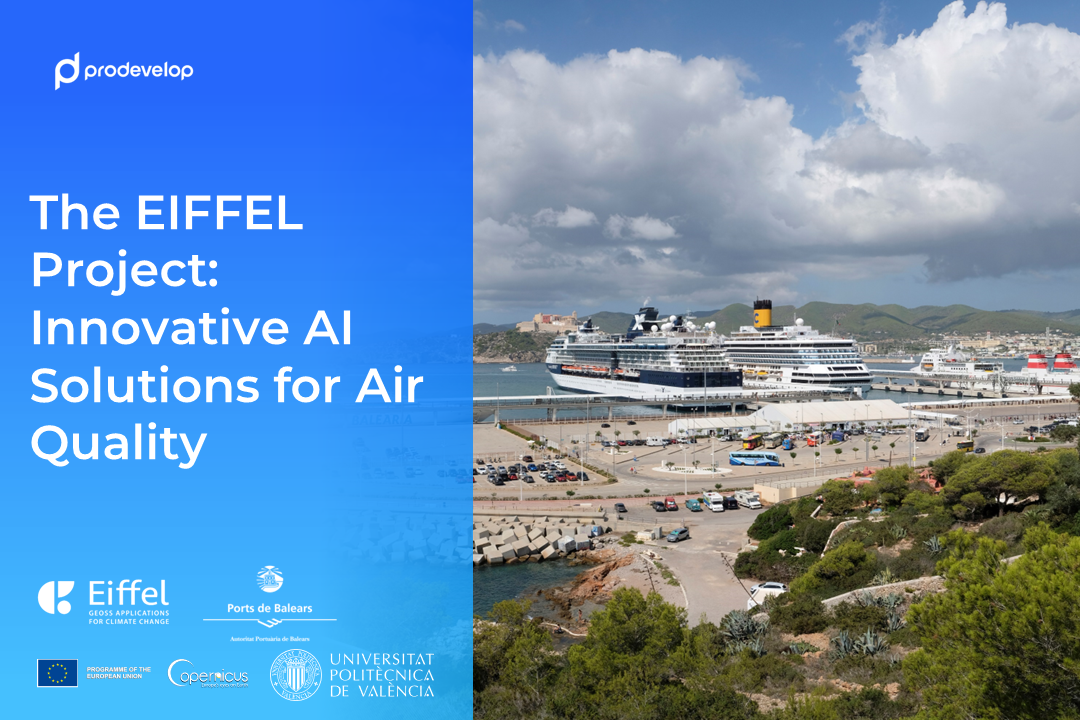The EIFFEL Project Concludes with Groundbreaking Results in Climate Change Mitigation at the Balearic Islands Ports
Prodevelop proudly announces the successful conclusion of the EIFFEL project, a research and development initiative aimed at advancing climate change adaptation and mitigation strategies through the integration of advanced artificial intelligence (AI) and GEOSS (Global Earth Observation System of Systems) data. The project, launched in 2021 under the Horizon 2020 framework, has provided an effective tool to enhance environmental sustainability at the Balearic Islands’ ports.
Working jointly with the Balearic Islands Port Authority (BPA) and the Universitat Politècnica de València (UPV), Prodevelop has developed an advanced AI-driven application to monitor and predict air pollution caused by port activities. With more than 50,000 ship calls and millions of passengers passing through these ports annually, the project’s objective was to find ways to reduce the carbon footprint and minimise environmental impact in nearby urban areas.
The EIFFEL application, co-designed with key stakeholders including the BPA, utilises enriched historical GEOSS (Copernicus) data combined with real-time information from BPA’s air quality sensor network and weather forecasts. This innovative system monitors pollutants such as NO2, SO2, and particulate matter (PM10 and PM2.5), providing predictions up to 72 hours in advance. These predictions allow port authorities to make data-driven decisions to reduce emissions and manage pollution effectively.
One of the project’s key achievements has been the deployment of this cutting-edge application, which integrates satellite data with in-situ sensor readings. This powerful combination of AI and data analytics has enabled pollution forecasting, enhancing the port’s capacity to mitigate the environmental impact of its routes. Notably, this system has improved transparency, facilitating better communication with the public and helping the BPA align its operations with the United Nations’ Sustainable Development Goals (SDGs).
Additionally, the EIFFEL project has demonstrated that collaboration between the different stakeholders involved (in this case, Prodevelop, BPA, and other entities such as shipping companies and the Universitat Politècnica de València) is essential to the success of an innovative project like EIFFEL. The outcome has been the development of a decision-support tool to improve air quality at ports—one of the highest priorities at European ports in relation to climate change.
Although the project has now concluded, the EIFFEL team is confident that the tools and methodologies developed will continue to offer valuable insights for reducing port-related emissions, contributing to broader climate change mitigation efforts. The knowledge and innovations generated by the EIFFEL project are expected to influence future environmental policies and lay a foundation for further advancements in sustainable port management.




